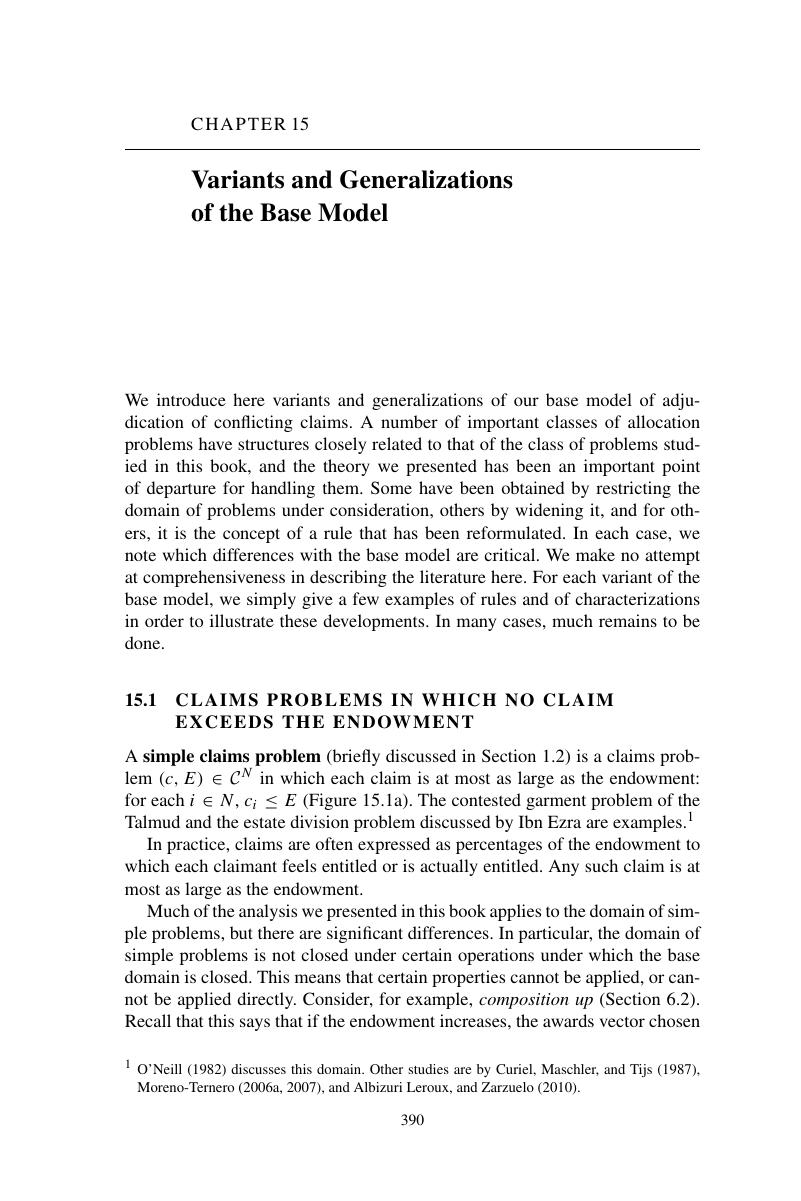 How to Divide When There Isn't Enough
How to Divide When There Isn't Enough Book contents
- Frontmatter
- Dedication
- Contents
- List of Figures
- List of Tables
- Acknowledgments
- General Notation
- 1 Introduction
- 2 Inventory of Division Rules
- 3 Basic Properties of Division Rules
- 4 Monotonicity Properties
- 5 Claims Truncation Invariance and Minimal Rights First
- 6 Composition Down and Composition Up
- 7 Duality
- 8 Other Invariance Properties
- 9 Operators
- 10 Variable-Population Model: Consistency and Related Properties
- 11 Constructing Consistent Extensions of Two-Claimant Rules
- 12 Variable-Population Model: Other Prope
- 13 Ranking Awards Vectors and Ranking Rules
- 14 Modeling Claims Problems as Games
- 15 Variants and Generalizations of the Base Model
- 16 Summary Graphs and Tables
- 17 Appendices
- References
- Index
15 - Variants and Generalizations of the Base Model
Published online by Cambridge University Press: 13 August 2019
- Frontmatter
- Dedication
- Contents
- List of Figures
- List of Tables
- Acknowledgments
- General Notation
- 1 Introduction
- 2 Inventory of Division Rules
- 3 Basic Properties of Division Rules
- 4 Monotonicity Properties
- 5 Claims Truncation Invariance and Minimal Rights First
- 6 Composition Down and Composition Up
- 7 Duality
- 8 Other Invariance Properties
- 9 Operators
- 10 Variable-Population Model: Consistency and Related Properties
- 11 Constructing Consistent Extensions of Two-Claimant Rules
- 12 Variable-Population Model: Other Prope
- 13 Ranking Awards Vectors and Ranking Rules
- 14 Modeling Claims Problems as Games
- 15 Variants and Generalizations of the Base Model
- 16 Summary Graphs and Tables
- 17 Appendices
- References
- Index
Summary

- Type
- Chapter
- Information
- How to Divide When There Isn't EnoughFrom Aristotle, the Talmud, and Maimonides to the Axiomatics of Resource Allocation, pp. 390 - 407Publisher: Cambridge University PressPrint publication year: 2019
